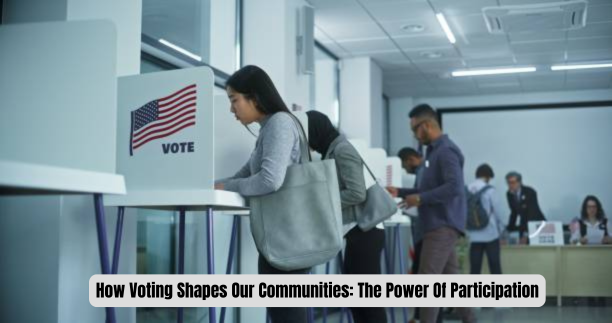The Historical Significance Of Voting
Voting has been a cornerstone of society and governance, considering historical events. By participating in elections, residents help shape the guidelines and management governing their lives. Historical activities like the American Civil Rights Movement, in addition, highlight the significance of safeguarding balloting rights for all.
Landmark modifications, including the 15th and 19th Amendments to the U.S. Constitution, which prolonged vote-casting rights to African Americans and girls, demonstrate the progress made inside the war in opposition to voter suppression and discrimination, showcasing the electricity of collective action through voting.
How Voting Empowers Communities
When groups actively vote, they influence nearby governance and public policy. The evolution of voting rights, from early democratic practices in ancient Greece to present-day elections, underscores the significance of voting. Why is it important to vote? Voting empowers residents to pick representatives to address their specific needs and concerns.
For example, public school investment and community policing rely heavily on voter participation and help. Imagine a community where residents actively take part in school board elections, leading to increased investment for higher instructional assets and centers.
Similarly, local ordinances on community policing can replicate voters’ values and priorities, improving transparency and duty in law enforcement practices. When groups come collectively to vote, they can ensure their pursuits are represented at local, national, and countrywide ranges, growing a responsive and inclusive governance gadget.
The Role of Youth In Voting
The balloting electricity of young humans needs to be taken into consideration. Young electorate usually convey new views and electricity to the political panorama. They are regularly enthusiastic about climate trade, training reform, and social justice problems. By participating in elections, younger humans can force trade and impact the future course of policy and governance.
For instance, the increasing adolescent voter turnout in recent elections has brought about a more robust recognition of environmental rules and sustainable practices, reflecting the priorities of more youthful generations. Initiatives like online voter registration and early balloting have endorsed youth participation. Engaging younger citizens is paramount for a vibrant and evolving democracy, as they constitute the voices and concerns of destiny.
Ensuring Fair And Free Elections
The integrity of democracy depends on polls being fair and open to everyone. Elections must be fair and open to all qualified voters. The importance of protective voter rights can not be overstated. Transparent and honest election methods construct public agreement and assist in saving conflicts. For instance, nations with sturdy electoral systems frequently have higher voter turnout and more excellent political stability.
Where electoral fraud and disenfranchisement can result in civil unrest. International organizations and neighborhood watchdog groups monitor elections to ensure fairness and transparency. Implementing measures like steady voting technology and rigorous auditing approaches also assist in guarding the integrity of elections, ensuring that the human voice is correctly represented.
Barriers To Voting And How To Overcome Them
Despite the importance of voting, various limitations may prevent people from collaborating in elections. Issues like voter suppression, loss of data, or logistical demanding situations can discourage capacity citizens. Overcoming these obstacles requires concerted efforts to ensure voter registration and get the right of entry, teach voters about their rights, and provide vital assets at polling stations.
Community companies are essential in tackling those demanding situations and assisting residents in exercising their right to vote. For instance, initiatives like cell voting gadgets and extended polling hours can help accommodate citizens with restricted mobility or non-conventional painting schedules.
Additionally, academic campaigns that demystify the balloting technique and spotlight the impact of male or female votes can encourage extra participation. We will create an inclusive electoral procedure that enables better voter turnout and lively civic engagement by addressing those limitations.
Real-Life Examples Of Voting Impact
Evidence of balloting’s effect may be observed in several real-existence situations. For example, the election of nearby officers who finally implemented network-pushed programs is a testament to balloting power. These fantastic adjustments underscore voter participation and may enhance public safety, schooling, and healthcare. In one tremendous case, a network’s overwhelming support for a public fitness initiative established the latest clinics and advanced entry to healthcare offerings.
Similarly, voter-sponsored funding for public safety caused the implementation of community policing models that foster consideration and cooperation among regulation enforcement and residents. These examples spotlight that citizens actively vote to can force significant trade and hold their leaders liable for turning in on their guarantees.
Conclusion
Ultimately, vote casting effectively shapes our communities and ensures a responsive and inclusive governance gadget. Participation in elections allows citizens to endorse their rights and power development. By providing information on the significance of voting and overcoming barriers to participation, groups can harness the overall power of democracy.
Engaging in the voting system is a right and a civic obligation that can bring about meaningful exchange. As we try for a more inclusive and equitable society, balloting stays a critical element of that adventure. We can create a future that reflects all residents’ numerous voices and aspirations through collective movement and unwavering commitment to civic engagement.
Also Read:

